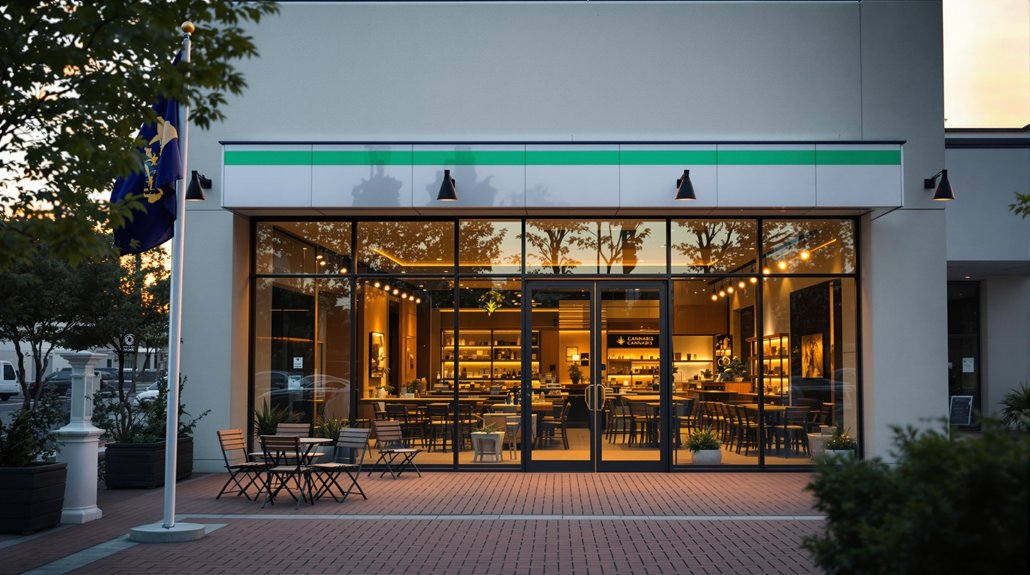The Bay State is preparing to light up a new chapter in cannabis policy as Massachusetts moves closer to becoming the eleventh state to legalize public marijuana consumption venues. The Massachusetts Cannabis Control Commission (CCC) published draft regulations in August 2025, opening a public comment period that runs until September 8 as the state charts its course toward mid-2025 implementation.
Massachusetts blazes ahead as the eleventh state to legalize public cannabis consumption venues with draft regulations now under review.
Three distinct license types form the backbone of the program. Supplemental licenses allow existing marijuana establishments to add on-site consumption areas. Hospitality licenses enable non-cannabis businesses like cafes and yoga studios to partner with cannabis operators for designated consumption spaces. Event Organizer licenses create temporary consumption venues lasting up to five days for festivals and gatherings.
The state is placing equity front and center with a five-year exclusivity period. Social equity businesses, economic empowerment applicants, minorities, women, veterans, microbusinesses, and craft cooperatives get first dibs on all three license types. General applicants will have to wait their turn while priority groups receive expedited application reviews.
Safety protocols reflect lessons learned from other states’ experiences. Venues must maintain strict separation between smoking and non-consumption areas. Mandatory “cool down areas” provide refuge for consumers experiencing negative reactions or overconsumption episodes. The regulations ban alcohol and tobacco at cannabis sites, preventing mixed-substance complications. Entrepreneurs entering this market must understand THC bioavailability rates in edibles differ significantly from smoking, affecting how venues will need to educate consumers.
Business models span diverse venue types including lounges, theaters, lodgings, and entertainment spaces. Hospitality license holders must keep cannabis operations separate from their primary business activities. Event organizers can create pop-up consumption spaces for off-premises gatherings, though they need host community approval and municipal sign-off.
Municipal control remains a critical component. Cities and towns retain authority to opt in or out of hosting social consumption sites within their borders. This local control mechanism addresses community concerns while providing flexibility for cannabis-friendly municipalities. The public comment period will officially begin with a Sept. 8 hearing in Worcester to gather community input.
The regulatory process emphasizes stakeholder engagement through multiple public comment periods and hybrid hearings. Industry advocates, municipal officials, and legal associations are actively shaping policy details around site management, safety protocols, and overconsumation prevention measures. The draft regulations have faced feedback and scrutiny from municipal associations as communities weigh the implications of allowing social consumption venues.
Operational requirements mirror traditional cannabis regulations with strict rules covering sanitation, packaging, waste disposal, security, advertising restrictions, and detailed recordkeeping. The CCC aims to balance consumer demand for social consumption spaces with community safety concerns and regulatory oversight.
As Massachusetts prepares to join the growing list of states embracing public cannabis consumption, the success of its equity-focused approach and thorough safety protocols will likely influence policy decisions in other states considering similar legislation.










